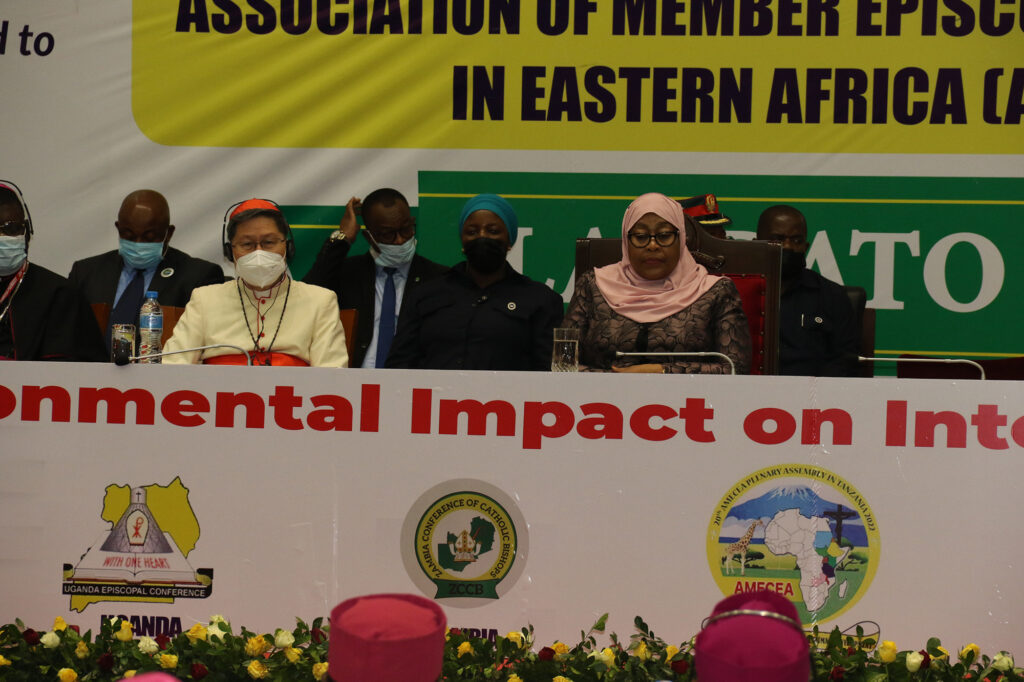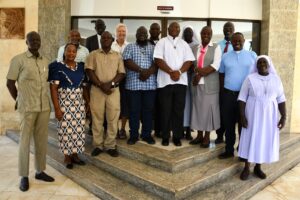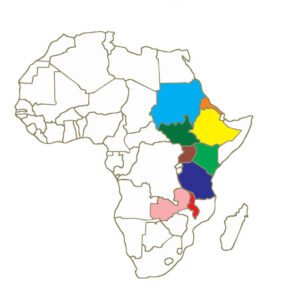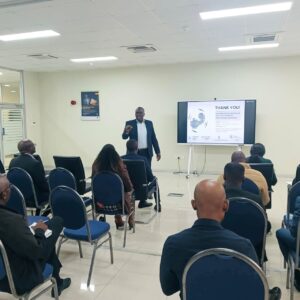AMECEA PLENARY: Fraternity Suffers in the Absence of Integral Human Development, Says Vatican Official to AMECEA Bishops

Sr. Jecinter Antoinette Okoth, FSSA
Human growth and development call for fraternal love of all creation, Cardinal Tagle told bishops of the Association of Member Episcopal Conferences in Eastern Africa (AMECEA) at the opening of the study session of the 20th plenary assembly in Dar es Salaam, Tanzania.
In his keynote address to about 270 delegates including the bishops on Monday, July 11, Louis Antonio Cardinal Tagle the Pro-Prefect for the Dicastery for Evangelization highlighted that absence of fraternal love “is a sign of insecurity towards others.”
“When there is lack of integral human development, fraternity suffers, we become enemies to each other,” Cardinal Tagle said.
“When there is a failure in human fraternity, almost automatically creation is misused, Creation become a tool to compete with others, to dominate others,” he continued.
Cardinal Tagle added that when there is failure in human fraternity, “Creation is not handled with respect and with gratitude; creation is not seen to develop humanity but to impoverish others hence creation becomes a weapon of greed and domination.”
Focusing his address on the theme for the week-long plenary assembly: Environmental impact on integral human development, the Filipino Prelate who doubles as the President of Interdicasterial Commission for Consecrated Religious, stressed that when fraternal love lacks, “We become enemies and threats to each other rather than relating as partners, brothers or sisters.”
In his observation, the tradition of the Church in Africa is “a condition for and a measure of evangelization,” which is a sign of integral human development.
The Cardinal who is the former recipient of the 2015–16 Ford Family Notre Dame Award for Human Development and Solidarity, has been a consistent advocate for the poor and vulnerable in the Catholic Church.
Reflecting on the two Encyclical letters of Pope Francis; Laudato Si’ (On care for Our Common Home) and Fratelli Tutti on fraternity and social friendship, Cardinal Tagle underscores that the encyclicals outlines the connection between integral human development and the aspect of universal love.
Looking at integral human development from the aspect of fraternity and social friendship, the Vatican official noted that the recent Covid-19 pandemic exposed social, economic and political weaknesses that have been existing in the countries and in the international relations for a long time “and have remained largely ignored. Unfortunately, the pandemic has made all of these divisions worse.”
“We know that a lack of fraternity or caring for other people co-exists with behaviours and practices that damage creation. The neglect of neighbours as brothers and sisters, and the misuse of creation are mutually dependent and they reinforce each other,” he said.
On the other hand, reflecting on integral human development from the aspect of care for environment, the Prelate emphasizes that Pope Francis reinforces this aspect in Laudato Si’ when he said that “human environment and the natural environment deteriorate together.”
“When there is a deterioration in human environment there will be a deterioration in the ecological environment. We cannot adequately combat environmental degradation unless we attend to causes related to human and social degradation,” he echoed Pope’s message and continued, “Ecology and the human aspect are intertwined. They cannot be separated.”
Merging ecological justice and integral human development during his keynote address on July 11, the Cardinal notes that Pope Francis calls for integral ecology or ecological justice in the encyclical Laudato Si’ and ends the fourth chapter “with intergenerational justice.”
Additionally, Fratelli Tutti describes the manifestation of injustices “preventing integral human development, destroying human fraternity and in the end destroys creation.”
“Very often the idols we have been worshipping are ourselves. We have made ourselves the Masters of creation. We have forgotten that we have creatures and not Gods. We have forgotten that we are custodians and not owners. And when we start behaving that way towards creation, what will stop us from thinking that we are owners of other people,” Cardinal Tagle quoted Pope Francis message in Laudato Si’.
“We need to return to God, avoid being idols, especially the idol known as self and this will lead to fraternity and the caring for God’s creation,” he insisted.
The AMECEA 20th Plenary assembly that runs from 9th-17th July, has brought together bishops from eight conferences of the region, affiliate countries, partners and other invited guests.


